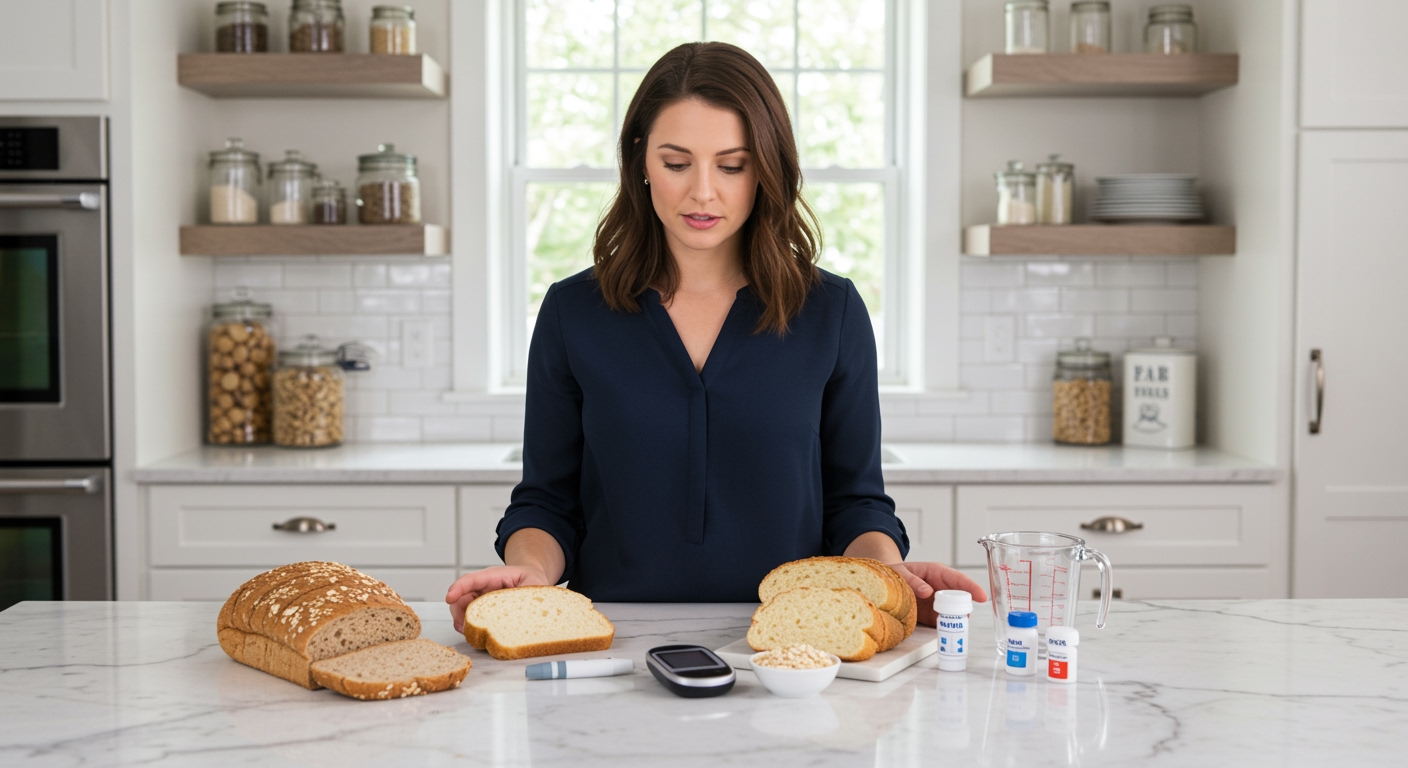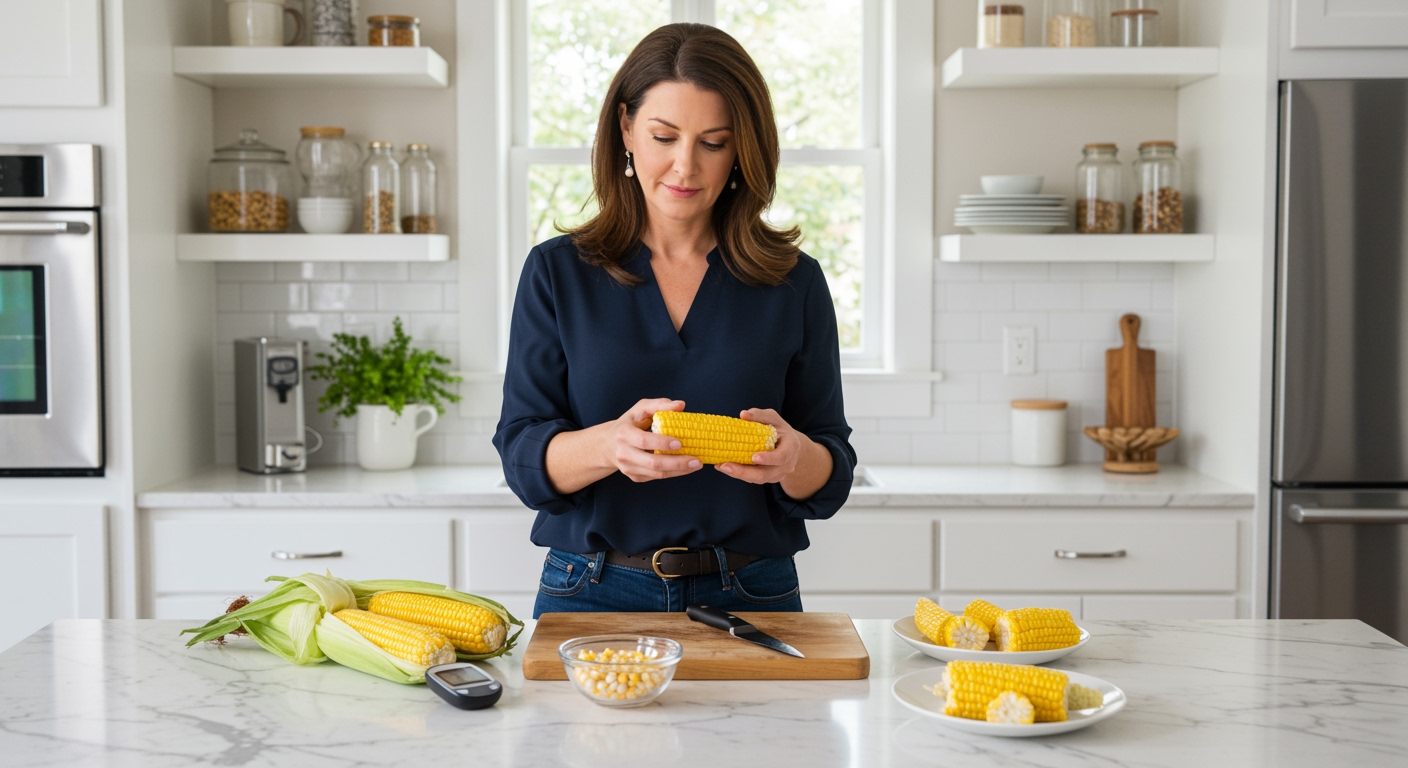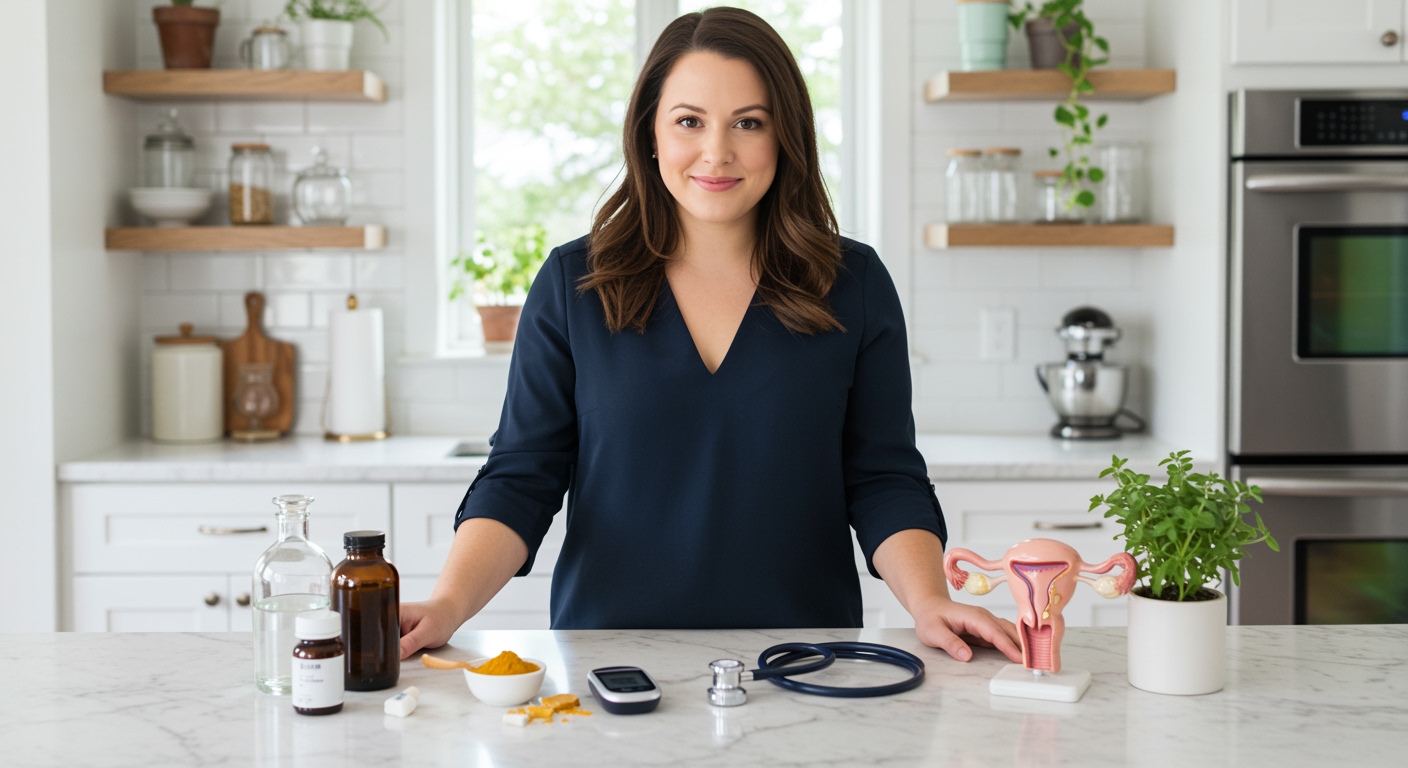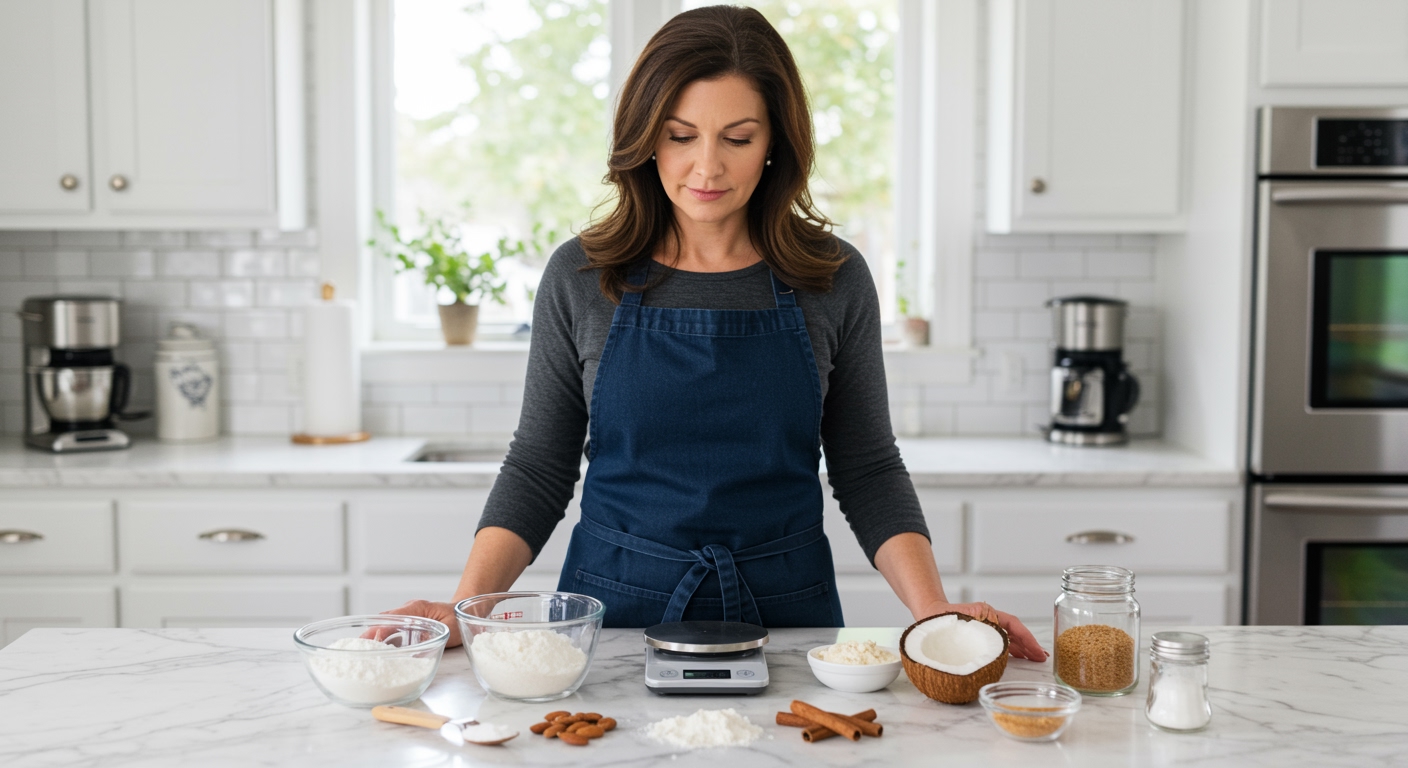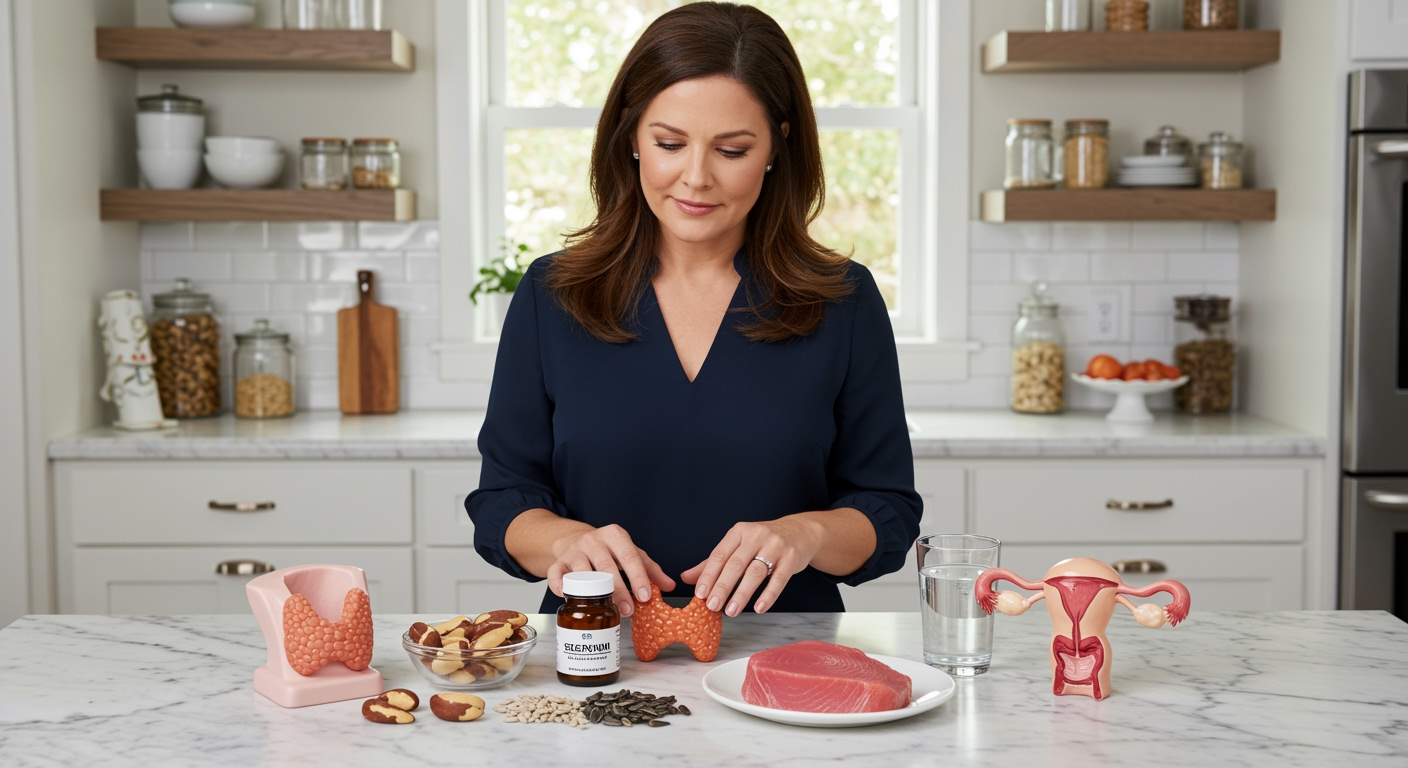✪ Key Takeaway: Women with PCOS can eat bread, but whole grain varieties are better than refined white bread for blood sugar control.
Introduction
You open your pantry and stare at that loaf of bread, wondering if it will make your PCOS symptoms worse.
Many women with PCOS feel confused about bread because they hear conflicting advice from different sources.
Hi, I’m Abdur, your nutrition coach and today I’m going to explain whether women with PCOS should avoid eating bread completely.
How Does Bread Affect PCOS Symptoms?
Bread affects PCOS symptoms primarily through its impact on blood sugar and insulin levels.
When you eat bread, your body breaks down the carbohydrates into glucose, which enters your bloodstream.
Your pancreas then releases insulin to help cells absorb this glucose for energy.
Women with PCOS often have insulin resistance, meaning their cells do not respond properly to insulin.
This leads to higher insulin levels in the blood, which can worsen PCOS symptoms like irregular periods and weight gain.
High insulin levels also trigger the ovaries to produce more androgens (male hormones), which cause acne and excess hair growth.
✪ Fact: About 70% of women with PCOS have insulin resistance, making blood sugar management crucial for symptom control.
Which Types Of Bread Are Better For PCOS?
Whole grain breads are significantly better choices for women with PCOS than refined white bread.
Whole grain breads contain the entire grain kernel, including the fiber-rich bran and nutrient-dense germ.
This fiber slows down the digestion and absorption of carbohydrates, leading to a more gradual rise in blood sugar.
White bread, on the other hand, is made from refined flour that has been stripped of most fiber and nutrients.
This causes a rapid spike in blood sugar and insulin levels, which can worsen PCOS symptoms.
Look for breads that list whole wheat, whole oats, or other whole grains as the first ingredient.
Sourdough bread made from whole grains can also be a good option because the fermentation process may help lower its glycemic impact.
✪ Pro Tip: Choose breads with at least 3 grams of fiber per slice to help stabilize blood sugar levels.
How Much Bread Can Women With PCOS Eat?
The amount of bread you can eat with PCOS depends on your individual carbohydrate tolerance and overall diet.
Most nutrition experts recommend limiting bread to 1-2 servings per day for women with PCOS.
One serving equals one slice of bread or half of a small roll.
The key is to pair bread with protein and healthy fats to further slow down blood sugar absorption.
For example, you could have whole grain toast with almond butter and sliced avocado.
This combination provides fiber, protein, and healthy fats that work together to stabilize blood sugar.
Monitor your body’s response by checking how you feel after eating bread and consider tracking your blood sugar if possible.
✪ Note: Timing matters – eating bread earlier in the day when insulin sensitivity is higher may be better than evening consumption.
What Are The Best Alternatives To Traditional Bread?
Several bread alternatives can satisfy your cravings while being more PCOS-friendly.
Cauliflower bread and almond flour bread are low-carb options that cause minimal blood sugar spikes.
These alternatives are higher in protein and healthy fats, which help keep you full longer.
Lettuce wraps, portobello mushroom caps, and sweet potato slices can also replace bread in sandwiches.
Cloud bread, made from eggs and cream cheese, provides a virtually carb-free option for those following very low-carb diets.
Ezekiel bread, made from sprouted grains and legumes, offers more protein and nutrients than regular whole grain bread.
The sprouting process may also make the nutrients more bioavailable and easier to digest.
✪ Pro Tip: Try making your own almond flour bread at home to control ingredients and avoid hidden sugars or preservatives.
The Bottom Line
Women with PCOS do not need to completely avoid bread, but choosing the right types and amounts makes a significant difference.
Smart food choices are about progress, not perfection – every small improvement counts toward better health.
I would love to hear about your experiences with bread and PCOS management, so please share your thoughts or questions in the comments below.
References
At NutritionCrown, we use quality and credible sources to ensure our content is accurate and trustworthy. Below are the sources referenced in creating this article:
- Smart Fertility Choices: Best Bread for PCOS
- Healthline: PCOS Diet
- Medical News Today: PCOS Diet and Foods
- PCOS Awareness Association: PCOS Diet How Diet Affects PCOS
